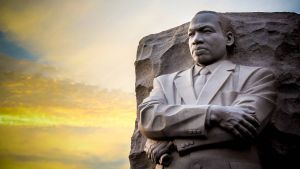Fans of classic author Jane Austen and her novels, including Emma and Pride and Prejudice, have a new reason to celebrate her life and work. An Arizona State researcher has uncovered previously unknown information linking Austen and her family to England’s anti-slave movement in the early 1800s.
Lynn Elber of the Associated Press has reported that Devoney Looser, an Arizona State University professor and author of The Making of Jane Austen, recently discovered that one of Austen’s favorite brothers was an abolitionist. The discovery came to light when Looser found Rev. Henry Thomas Austen’s attendance recorded at the 1840 World Anti-Slavery Convention in London — an event which drew a then-impressive 500 delegates. Since her discovery, Looser has detailed her research in an essay published in The Times Literary Supplement.
“I was stunned to find that fact,” Looser said in an interview with Elber. “The family’s commitments and actions changed profoundly, from known complicity in colonial slavery to previously unnoticed anti-slavery activism. Henry became a next-generation Austen publicly supporting a political commitment to abolish slavery across the globe.”
Patricia A. Matthew, an associate professor of English at Montclair State University, told Elber she was excited by the news and how it might change people’s perception of Austen’s six major novels before her untimely death at the age of just 41.
“I’m always excited about new information about the authors I teach,” Matthew said. She also added that the news could have a “resounding” impact with Austen’s most devoted admirers — individuals who are sometimes called “Janeites.”
“I think [readers] are having a kind of reckoning in how they think about not just Austen, but the Regency period [in which she lived],” Matthew said. “It raises all manner of interesting questions about how they understand this author.”
According to Elber, Austen’s novels tend to be “sharply observed works about human nature and relationships, not anchored in current events. There is a reference to slavery in Mansfield Park, and a conversation between two characters in Emma includes mentions of abolition and the sale of ‘human flesh.’”
Although not a lot was known about Austen’s personal political beliefs prior to Looser’s research, academics did have an inkling of her existing belief system. “We know from her letters that she refers to having loved the writings of a prominent white abolitionist, Thomas Clarkson,” Looser said. “So, we know that she read and cared about issues of race and racial injustice.”
In a discovery separate from Looser’s research, a diary entry from another of Austen brother’s named Francis (which was made public in the early 1900s) — resurfaced, where he lamented the fact that any trace of slavery “should be found to exist in countries dependent on England, or colonized by her subjects.”
Parts of the British press were incredibly upset earlier this year when the museum at Jane Austen’s House in the town of Chawton — a mecca for Austen devotees — announced it was considering an exhibit on Austen’s connection to political issues that were prominent during her life, including abolitionism. But Looser said she feels it is perfectly acceptable to bring “modern issues and perspectives into consideration of Austen and her work.”
“Issues of race, racism and racial justice are central to Jane Austen’s day [as well],” Looser said. “We’re not bringing questions and concerns that weren’t there in her time. They were absolutely there.”
Related: For more recent diversity and inclusion news, click here.


















